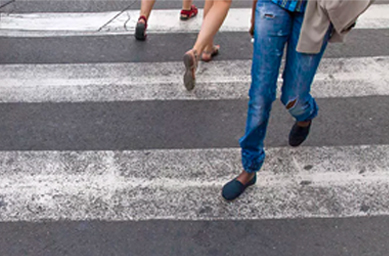Summer is the perfect time for backyard barbecues. Whether you’re planning on hosting a small gathering with family or you’re getting ready to grill with friends this 4th of July, barbecuing is a great way to enjoy delicious foods with the ones you love.
However, believe it or not, summertime barbecues are responsible for a not-insignificant number of injuries and deaths every year. According to the United States Fire Administration (USFA), approximately 100 injuries, 10 deaths, and $37 million in property loss can be attributed to barbecue-related residential fires annually. Additionally, the National Fire Protect Association (NFPA) reports that, from 2014 – 2018, barbecues, grills, and hibachis were involved in about 10,600 home fires every single year, with July being the most dangerous month of the year for these types of events.
You may not think about the risk of a fire or another serious barbecue-related accident when you’re getting ready to grill, but it’s important to take a few simple steps to ensure your own safety and the safety of others at your next backyard barbecue. Keep reading to see our helpful tips for avoiding injuries at your next summer barbecue or, if you were injured in a home fire or similar event due to someone else’s negligence, reach out to Todd Miner Law®️ to learn how we can help.
Quick Charcoal Safety Tips
Charcoal grills are a popular barbecuing option, due to the fact that they’re easy and relatively affordable to use. Like any other type of barbecue, however, charcoal grills pose a certain number of risks. Make sure to follow a few best practices to ensure your own safety and the safety of your friends and family.
Here are a few things to keep in mind when using a charcoal grill:
- Never burn charcoal indoors
- Avoid using charcoal grills inside tents, campers, or vehicles
- Never light a charcoal grill with gasoline, as the gasoline will explode
- Use designated charcoal lighter fluid and use it only in the suggested amounts
- When not using the lighter fluid, make sure the cap is on tight and store it a safe distance away from the grill
- Make sure there are no holes in the barbecue itself, as this could allow burning coals to fall through
- Avoid using charcoal grills underneath awnings, arbors, overhangs, and other structures
Charcoal gives off carbon monoxide (CO) when burning, and it keeps producing CO until it is completely extinguished. Therefore, never store your grill indoors with coals you recently burned, as this could expose you to CO poisoning, which could be deadly. Additionally, whenever using a charcoal grill or any type of barbecue, keep a fire extinguisher nearby. Make sure it works and that you (and your guests) know how to use it.
Gas Grill Safety Tips
Like charcoal grills, gas grills also pose a certain degree of risk. Gas grills are somewhat more complicated; it’s important that you regularly inspect your barbecue to ensure that all of its components are working properly. This is especially important if you haven’t used your grill in some time.
When using a gas grill, here are a few safety tips to keep in mind:
- Always check the tubes, connectors, hoses, and valve connections of your grill for gas leaks. If the pipes and hoses are nicked, scratched, or blocked due to debris, replace or clean them thoroughly before lighting the grill.
- Always ensure the lid is open before starting a gas grill. If the burner doesn’t light the first time, turn the grill off and wait five minutes before trying again.
- Only use propane grills outdoors; never use them inside or within closed-in patios, vehicles, campers, or other enclosed spaces.
- Keep the grill a safe distance away from any buildings, tree branches, deck railings, etc. and avoid using gas grills underneath overhangs, awnings, and other similar structures.
- Pay attention to the propane lines and connectors, as propane leaks are a major cause for explosions and other barbecue-related accidents.
- Never use charcoal or wood on a propane grill. Gas grills are not designed for this type of barbecuing and attempting to light a gas grill with charcoal or wood could lead to a fire.
- Regularly clean your gas grill and remove grease and other residue that could lead to flare-ups, sparks, and excessive smoke.
- Make sure you turn off the propane and leave it off when the grill is not in use. Always store propane safely and according to the manufacturer’s instructions.
What to Do If You Are Injured at a Backyard Barbecue
Unfortunately, accidents happen. What started off as a fun summertime barbecue may have quickly turned into a disaster, leaving you with serious injuries and damages. If this is the case, know that you do not have to simply deal with the consequences of someone else’s negligence on your own. Whether a homeowner failed to properly maintain their charcoal or propane grill or a manufacturer created or marketed a defective product, you could be entitled to financial compensation for your medical bills, lost wages, and other losses.
If you were injured at a backyard barbecue, make sure to seek proper medical attention for your injuries. Then, reach out to the personal injury attorneys at Todd Miner Law®️. For more than 32 years, our firm has been representing injured individuals throughout the Orlando area. We can help you understand your legal rights and options and work to recover the just compensation you deserve.
Contact our office today for a free consultation!








